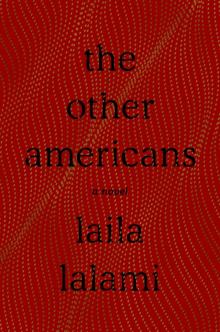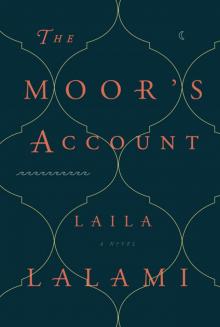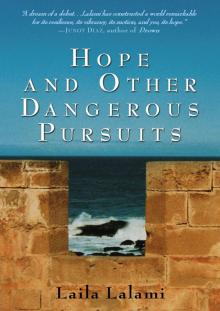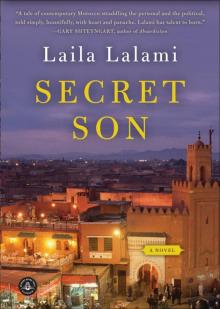- Home
- Laila Lalami
Hope & Other Dangerous Pursuits Page 6
Hope & Other Dangerous Pursuits Read online
Page 6
“And you think Spain’s going to be great? It’s all just hard work and ghurba and loneliness.”
“At least he’ll make a living,” Zohra said. Aziz was surprised to hear her jump in with the very words he’d used to persuade her a few weeks earlier. Her family had never liked him—they had let Zohra marry him only because she had been going out with him for three years and the gossip from the neighbors about their “loose daughter” had finished them off. But the marriage didn’t help Aziz’s tense relations with his in-laws. They had been nagging Zohra about his joblessness, and their comments had grown more persistent after she’d managed to find a job at a soda factory.
When the idea came to him, Zohra had tried to dissuade him, but she gave in after another few months of his unemployment. She said she’d wait for him and when he came back they could move out of his parents’ house, have a place of their own, and start a family. In short, she said, they could start living.
“And what about you?” Lahcen said, pointing at Zohra. “He’s going to leave you behind?”
“I’ll be back in two or three years,” Aziz said.
“Haven’t we all heard this before?” said Lahcen, his finger on his cheek in a gesture that made him look like a woman. “No one comes back.”
“I am coming back,” Aziz said, his thumb on his chest.
“He will,” Zohra said. She took her handkerchief from the sleeve of her jellaba and blew her nose in it. Aziz felt his guilt at leaving her behind pick at him again, and he put his hand on her knee and squeezed it gently.
“Why are you so against this?” Aziz asked Lahcen. “What do you want me to do?”
Lahcen’s sister Hakima came into the room, carrying a tray of tea and cookies. Lahcen reached for his pack of cigarettes and walked out. Aziz looked back and forth at the two women, his wife and his best friend’s sister, and feeling a little awkward about being left alone with them, got up and followed Lahcen outside.
“So, what do you want me to do?” Aziz asked, as he sat down next to his friend on the steps. He was genuinely curious what the answer would be.
“Try something else,” Lahcen said, as he lit his cigarette.
“Like what?”
Lahcen shrugged. “Look at me. I get by.” He had invested four hundred dirhams in a few phone cards, and he resold individual minutes at a higher price to people who wanted to make calls at pay phones. He worked out of the central post office in downtown Casablanca. His net gain was tiny, but it paid for his bus fares and his cigarettes. Besides, he declared that he liked it this way, that he always charmed people into buying from him, so he didn’t mind the competition from the other phone-card sellers, whether men, women, or children.
“It’s different for you. You’re single.”
“Then why did you get married?”
“What?”
Lahcen pulled on his cigarette. “If you hadn’t married, you wouldn’t have to do this.”
Aziz clicked his tongue. “Leave my wife out of this.”
“I’m just saying.”
“What do you want me to do? Sell minutes like you?”
“At least I’m doing something. And I don’t even have a diploma, like you.” The diploma in question was a piece of paper that lay in a folder by Aziz’s bed, gathering dust. Both Lahcen and Aziz had flunked their high school exams a few years back, and so they’d been unable to get into a university. Lahcen had started his phone-card operation, but Aziz had gone to trade school, and after two years he was given a degree in automation—which basically meant he could work as a repairman. He hadn’t found work.
“Diploma or no diploma, makes no difference.”
“You talk like that because you have one.”
Aziz sighed. “What is it with you today?”
“I should be asking you that, my friend. You come to me, telling me you’re going to get on a boat, risk your life to go to Spain, where you’re probably going to get caught anyway, and you want me to congratulate you?”
This version of Aziz’s future was one he’d heard before from his parents. They’d warned against the best (a farm job for slave wages!), the worst (a horrible death!), and everything in between (a life of inescapable delinquency!). But he had weighed their warnings against the prospect of years of idleness, years of asking them for money to ride the bus, years of looking down at his shoes or changing the subject whenever someone asked what he did for a living, and the wager seemed, in the end, worthwhile. “Do you have an extra cigarette?” he asked.
Lahcen handed over his pack of Olympique Rouge. “Look, maybe I can help you.”
Aziz lit his cigarette and took a long pull. The creaking sound of the door being opened behind them made them turn around. Hakima poked her head out and asked if they were coming in for dinner. Lahcen waved at her and said they’d be in soon. “Go get some bread,” Hakima said. “We’re out.”
Lahcen and Aziz got up and walked to the store, dragging their feet. It was cloudy outside and the wind had picked up. They crossed an empty lot where children played football under a rising cloud of red dust. The piceri had sold most of its bread for the day and had only a few loaves left. Lahcen carefully selected the best-looking one and handed a bill to the cashier, who looked back and forth at the two men, gave them a nasty look, but took the money nonetheless.
“What’s his problem?” Aziz asked when they left.
“He’s a strange fellow,” Lahcen said. “He doesn’t like people from outside the neighborhood.”
“Ya, what a donkey,” Aziz said. This shopkeeper reminded Aziz of his grandmother, who always seemed to find fault with people she barely knew. She found the mailman, a ‘arobi from the countryside near Casablanca, to be uncultured and uncouth. To the tailor, a Shamali from the north, she granted slightly higher status, but she often commented that he was too crafty to be up to any good. The Chleuh who sold her mint at the market was often the subject of her invectives about avarice. It had gotten to the point that Aziz had started to have some affection for the very people his grandmother would have disapproved of. Aziz told this story to Lahcen, adding a joke or two to cheer his friend as they headed back to the house for dinner.
“HE’S NOSY,” ZOHRA said, frowning. They were walking back home to the medina. Around them, shopkeepers were locking up for the day.
“He’s just concerned,” Aziz said.
“So is everyone else.”
Aziz didn’t answer. He was thinking about what Lahcen had said.
“Do you think he can really do something?” Zohra asked.
Her question was exactly what he feared—that Lahcen’s assurances of help would give Zohra hope, a hope that he knew would eat away at her determination to let him go, a hope he knew would eventually be crushed anyway. He held her hand and gave it a squeeze. “If Lahcen could help,” he said, “he’d have helped himself.”
“You never know,” she said.
THE NEXT DAY Lahcen showed up in a blue double-breasted suit, which he’d purchased from the swap meet at Derb Ghallef, where secondhand American clothes were sold, and which he wore on special occasions. “Where are you headed?” Aziz asked, as he greeted him at the door.
“To a meeting,” Lahcen said. “And you’re coming with me, Ammor.” He closed the door behind him.
Aziz knew that he would have to go along with whatever plan Lahcen had hatched, if only for the sake of his parents, who accused him of not having tried every possible solution before deciding to emigrate. “Fine.”
Lahcen sat down to have tea with Aziz’s parents. He talked about the weather, commented on the latest soccer match, and inquired after their health. Aziz’s father responded with a prompt “Hamdullah,” teasing his false teeth with his finger, taking them off and readjusting them, while Aziz’s mother, a notorious hypochondriac, complained at length about her latest bout of indigestion. Lahcen politely listened, finished his tea, then signaled to Aziz that it was time to go. “Bring your folder,” he ordered.
Aziz put it on and stepped outside to meet his friend. “Where are we going?”
“One of the women who buys minutes from me works for a dentist, and I asked her to talk to her boss about you.”
“What would a dentist want with me?”
“His chair is broken. Maybe you could fix it, and then he can tell his friends about you.”
“That’s not a job.”
“Let me look at your teeth.”
“What?”
“You need to be presentable when you walk into his office.”
Aziz laughed. “You know,” he said, “I appreciate that you’re trying to help me. But this isn’t a job, man. It’s a one-time thing, isn’t it?”
“It might lead to something.”
They took the bus downtown and walked into the dentist’s office just as a patient was leaving, yelling that she’d never come back. Lahcen held the door open for the woman, letting her finish her diatribe against doctors in general and dentists in particular, then walked in with Aziz behind him. He smiled at the receptionist, asking her how her boyfriend was, the one she always called from the pay phone. “He’s fine,” she said, her cheeks turning a light pink. “Have a seat, I’ll let the doctor know you’re here.” She disappeared, and Aziz and Lahcen sat down in front of a coffee table upon which lay three half-torn magazines, all of them about golf. Aziz picked one up and started to read while Lahcen crossed his legs and patted his pocket for his cigarettes without taking them out.
The afternoon wore on, punctuated by the sound of the doorbell, the moans of pain, and the ka-ching of the cash register. When the clock chimed six, Aziz suggested they leave. Lahcen patted his back and said now that they’d waited this long, they could wait a little longer. Finally the last patient left and the dentist stepped out, taking off his lab coat. He looked at the two men with a mix of surprise and recognition in his eyes. “You’re here,” he said.
Lahcen and Aziz stood up. The dentist went to the second examination room and pointed to a chair whose headrest was still in its original plastic cover. “I couldn’t get it to work,” he said, “and the installation company won’t return my calls.”
While Lahcen chatted with the doctor, Aziz examined the chair. The power cord was plugged in, but when he knelt down to look at the base he saw that there were two additional buttons. He pressed one and the chair made a whizzing sound. “The power wasn’t on,” he said.
“Oh,” said the dentist. Incredulous, he sat down on the stool and pressed various controls with his foot, the chair moving up and down on command. “Well, thanks,” he said, standing up, his eyes shifting.
Aziz watched as Lahcen went into a brief but charming speech about how his friend here could fix anything, and if the dentist would tell his colleagues, it would be most appreciated. The dentist nodded vaguely and called out to his receptionist that she could start closing the office. He took out a ten-dirham bill, which he gave to Aziz.
When they stepped out of the office, Aziz took Lahcen’s hand and stuffed the bill in it. “For your next pack of cigarettes.”
“What’s wrong?” Lahcen said.
“What am I going to do with ten dirhams?”
“At least it was something.”
“It was a waste of time,” Aziz said, pressing the call button for the elevator.
“Don’t talk that way. He’s going to tell his friends.”
“And admit how stupid he is?” Aziz gave up waiting for the elevator and ran down the stairs instead.
“Wait,” Lahcen yelled, his voice echoing in the dark staircase.
Aziz heard Lahcen miss a step, so he pushed the button for the timed light and waited for him.
AZIZ WAS CROSSING items off a packing list he’d drawn up. He wanted to take as little as possible, and he was trying to decide whether he should burden himself with a winter coat or not. Zohra suggested he take his waterproof jacket, even though it was a little too small, because it was lightweight and he could fit it into a pocket if he needed to. She had always been the practical one. Even during their courtship, Aziz had felt he was the more romantic of the two, and he’d often wondered if that meant he loved her more than she did him or if she loved him just as much, but in her own, sensible way.
The doorbell rang. It was Lahcen, asking if Aziz would like to go get a cup of coffee. “Sure,” Aziz said. There was still plenty of time to worry about packing. They walked to a café just outside the medina, on Place Mohammed V. When the waiter came by with their coffees, Lahcen insisted on paying.
“Still intent on going?” he asked.
Aziz nodded.
Lahcen launched into another speech about why this was a foolish enterprise, but Aziz tuned out after a few minutes. He watched two men, seated across from each other at a table on the street-side terrace, intently leaning toward one another, immersed in their conversation. Whatever they were talking about must have been riveting, because they were oblivious to the pretty college girls passing right by their table. One of the men smiled and touched the inside of the other’s arm, rubbing it with his thumb. Aziz looked around him to see if anyone else had noticed the gay couple, but no one seemed to pay any attention.
“Are you listening?” Lahcen asked.
Aziz looked into his friend’s brown eyes, and the memories suddenly came back to him of all the times back in high school when Lahcen had put his arm playfully around Aziz’s shoulders as they walked back home, or how he found fault with nearly every girl Aziz tried to chat up. When they’d go to the beach, Lahcen would say he didn’t want to play soccer, preferring to just lie on the sand. Tapping his hand on the towel next to him, he’d tell Aziz that he needed to learn to relax and enjoy the sun.
“Yes,” Aziz said. “I’m listening.”
“There was an article in L’Opinion about it, man. With photos of the people who drowned and everything.”
Aziz nodded. “I know all this.”
“And you’re not afraid?”
“I just think it will work out.”
“You’re insane, Ammor,” Lahcen said, shaking his head. “And where are you going to get the money?”
“My father,” Aziz said. This was not entirely true. Aziz had put together the sum he needed by combining savings from Zohra’s meager salary at the factory, a loan from a cousin, and some money from a settlement his father had received when he was in a car accident two years earlier, but he feared that sharing this information would lead to even more entreaties to give it up for the sake of everyone involved.
“Oh,” Lahcen said. He drummed his fingers on the table and pushed his coffee cup away.
Aziz felt a twinge of guilt at always dismissing his friend’s arguments and turning down his offers of help. “Don’t worry about me,” he said. “I’m the one who should be worrying about you.”
Lahcen looked up, surprised. “Me? Why?”
“Well …,” Aziz said, suddenly at a loss for words. A long minute of silence went by, and then he shrugged.
A FEW DAYS LATER, Aziz dropped by the central post office to see Lahcen. He found him standing next to a pay phone, waiting for a customer—a policeman in his gray uniform and white epaulets—to finish his longdistance call. “Have a seat,” Lahcen said, as though this public place, where people came and went, was his private office. Aziz sat in the waiting area, watching as a woman in a brown suit argued pointlessly with a teller about unauthorized charges on her phone bill, then left without getting a refund. An old man who cashed a check was immediately surrounded by a band of street urchins asking for change.
“How are you?” Lahcen asked, as he dropped into the plastic chair next to Aziz.
“Fine,” Aziz said. “Here, take this.” He handed Lahcen the tae kwon do club card he had brought for him.
“What’s this for?”
“My sisters bought me a membership as a pre
sent three months ago,” Aziz said. “And I won’t be using it anymore, so I thought you might like it.”
“Tae kwon do?” Lahcen said, laughing. “I’ve never tried it.”
“I thought you might like it,” Aziz said again, as though sheer repetition could make something come true. “And you might make new friends.”
Lahcen turned the card around in his hand and slipped it into his pocket, nodding as if he wanted to humor Aziz. “Now, do you want to go for a cup of coffee?”
“I also brought you these,” Aziz said, taking a few of his long-sleeved shirts out of a black plastic bag. He thought that they would be better for Lahcen than those tank tops he always wore to show off his biceps.
Lahcen held one of the shirts up against his chest. “You want me to look like you,” he observed.
“I just thought I’d help,” Aziz said.
“They probably won’t fit.”
“Just take them.”
“No, I can already see they won’t fit,” Lahcen said, folding up the shirts and placing them back in the bag. “You keep them.” He stood up, an eyebrow raised questioningly, waiting to see whether his friend would follow him.
“Why are you so stubborn?” Aziz asked.
“That’s a good one.”
Aziz sighed and stood up. “Fine, let’s go get coffee.”
Lahcen wanted to go back to the same café they’d been to before, near the medina, but Aziz insisted that they go to Ain Sebaa instead. “Why? The place is deserted,” Lahcen complained. Aziz replied that he wanted to meet Zohra after she got off work at the soda factory, omitting the fact that he’d convinced her to bring a friend of hers along to the café; he wanted it to be a surprise.
This time Aziz insisted on paying for the coffees. It was sunny, so they sat outside. There were few passersby, but there was quite a bit of traffic, and so they passed the time smoking and staring at the line of French and German cars waiting for the light, the drivers talking on their mobile phones while their stereos blasted American music. Aziz imagined that maybe one day he would be like them, have a car and a place to go to, instead of sitting idle at a coffee shop while his wife was at work.

 The Other Americans
The Other Americans The Moor's Account
The Moor's Account Hope & Other Dangerous Pursuits
Hope & Other Dangerous Pursuits Secret Son
Secret Son